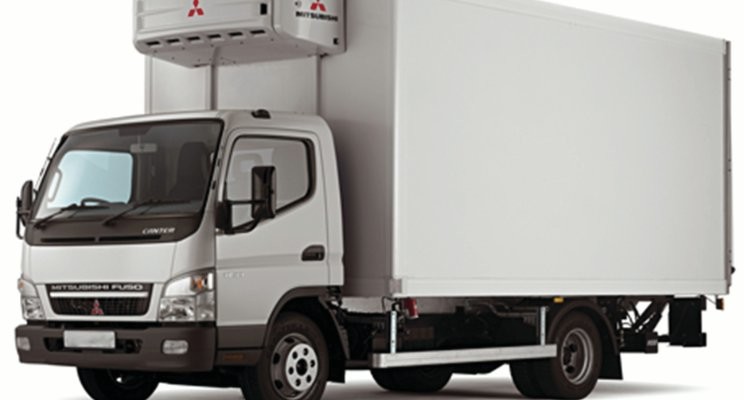Benefits of Partnering with Developed Transport Refrigeration Companies
Benefits of Partnering with Developed Transport Refrigeration Companies
Blog Article
Just How Chilled Trucks Run to Guarantee Safe and Effective Delivery of Perishable Goods
Refrigerated trucks play a vital duty in the supply chain, making certain that disposable goods are carried safely and successfully. Making use of innovative refrigeration modern technologies and robust insulation, these cars maintain specific temperature level control, which is vital for maintaining the quality of sensitive items.
Review of Refrigerated Trucks
Cooled trucks, commonly described as reefer vehicles, play an important role in the transportation of perishable goods throughout numerous industries. These specific cars are created to maintain particular temperature varieties, guaranteeing that products such as fresh fruit and vegetables, dairy products, meat, and drugs continue to be safe for intake and reliable use. The procedure of cooled vehicles is important in decreasing spoilage and extending the shelf life of temperature-sensitive products.
Reefer trucks are geared up with insulated cargo locations that can maintaining reduced temperature levels, which can be adjusted according to the kind of goods being carried. The lorries normally make use of a refrigeration device powered either by the lorry's engine or an independent power source, allowing for consistent temperature level control during transportation.
In addition to temperature level maintenance, these trucks are commonly designed with innovative monitoring systems to track the inner setting, guaranteeing conformity with health and wellness regulations. Moreover, cooled vehicles add substantially to the supply chain, allowing timely deliveries to retailers, consumers, and restaurants. Their pivotal function emphasizes the significance of dependable transport solutions in today's worldwide market, where freshness is critical.
Key Refrigeration Technologies
Preserving optimum temperature control in refrigerated trucks relies upon several vital refrigeration innovations that improve efficiency and dependability. One of the most usual systems is the vapor-compression refrigeration cycle, which utilizes a cooling agent to absorb heat from the vehicle's inside, lowering the temperature level. This procedure entails a compressor, condenser, development valve, and evaporator, functioning in tandem to circulate the refrigerant and maintain a consistent environment.
Another notable technology is using eutectic plates, which store and launch thermal energy. These plates are loaded with a phase-change product that solidifies at a specific temperature level, offering a stable air conditioning source. This technique not just boosts power effectiveness however likewise minimizes the requirement for constant power supply during transportation.
In addition, progressed insulation materials, such as polyurethane foam, significantly improve the thermal efficiency of chilled vehicles, decreasing temperature level fluctuations throughout dumping and loading. Some modern cooled trucks likewise include telematics systems, enabling real-time surveillance of temperature and performance, therefore guaranteeing conformity with safety requirements. Together, these innovations guarantee the safe transportation of perishable goods while maximizing functional effectiveness and minimizing power usage.
Temperature Control Mechanisms
Reliable temperature level control devices are essential in making sure the honesty of subject to spoiling goods during transportation. Refrigerated vehicles make use of advanced innovations to maintain consistent temperature level arrays, preventing wasting and making sure product safety and security - transport refrigeration company.
In addition, modern refrigerated trucks are equipped with electronic thermostats and programmable temperature monitoring systems. These systems allow for real-time tracking of interior temperatures, supplying informs if the temperature drifts from the predetermined array. This capability is important for conformity with health and wellness guidelines.
Insulation likewise plays an essential duty in temperature control. High-grade insulation materials reduce warm exchange, preserving the wanted internal conditions. Moreover, air flow monitoring within the freight area is crafted to make sure consistent temperature level distribution, avoiding hotspots that can compromise product honesty (transport refrigeration companies).
Best Practices for Packing

First, it is important to pre-cool the truck before packing. This method permits the temperature level control system to stabilize, developing a perfect setting for disposable products. Next off, items should be loaded in a way that promotes airflow. Stay clear of overloading and obstructing vents, as this can cause temperature variations and hotspots.
Using pallets or shelving can aid in organizing things, ensuring that heavier items are put at the base to prevent crushing lighter items. In addition, his explanation it is important to set apart various kinds of products, particularly those with differing temperature level requirements, to stop cross-contamination and spoilage.
Lastly, safeguarding the lots with bands or internet will certainly avoid activity during transit, consequently reducing the threat of damages and preserving the integrity of temperature-sensitive items. By sticking to these ideal methods, operators can make sure secure and reliable delivery of perishable products while taking full advantage of the efficiency of their chilled trucks.
Challenges and Solutions in Transport
Carrying items in refrigerated trucks offers several challenges that can affect the honesty of temperature-sensitive items. One considerable problem is temperature level fluctuations, which can take place because of tools malfunction or incorrect loading additional reading techniques. These changes can result in wasting, endangering the high quality of disposable items. Additionally, roadway problems and delays can additionally intensify temperature control concerns, especially throughout expanded transit times.
To deal with these challenges, carrying out robust tracking systems is critical. Advanced telemetry can supply real-time temperature level information, notifying vehicle drivers to any anomalies. Normal maintenance of refrigeration systems guarantees ideal performance and minimizes the danger of breakdowns. Furthermore, training personnel on best loading and unloading practices can minimize the risk of temperature discrepancies.
An additional secret option involves course optimization. Utilizing GPS and web traffic monitoring modern technologies can assist drivers pick one of the most effective courses, decreasing transportation times and reducing direct exposure to damaging problems. Teaming up with trusted logistics partners that prioritize cold chain integrity is additionally important for guaranteeing that items continue to be within required temperature ranges.

Conclusion
In conclusion, cooled trucks play a crucial duty in the reliable and secure transportation of disposable goods. Utilizing innovative refrigeration technologies and efficient temperature control devices guarantees that items remain within required temperature level varieties. Sticking to best techniques in packing and course optimization even more enhances distribution effectiveness. Resolving obstacles through innovative services is important for preserving compliance with wellness laws, ultimately protecting the honesty of delicate products throughout the supply chain.

Report this page